Dr. Yoriyuki Nakamura of the Center for Tea Research explains the true significance of “the beneficial effects of tea” 【Shizuoka City, Shizuoka Prefecture】
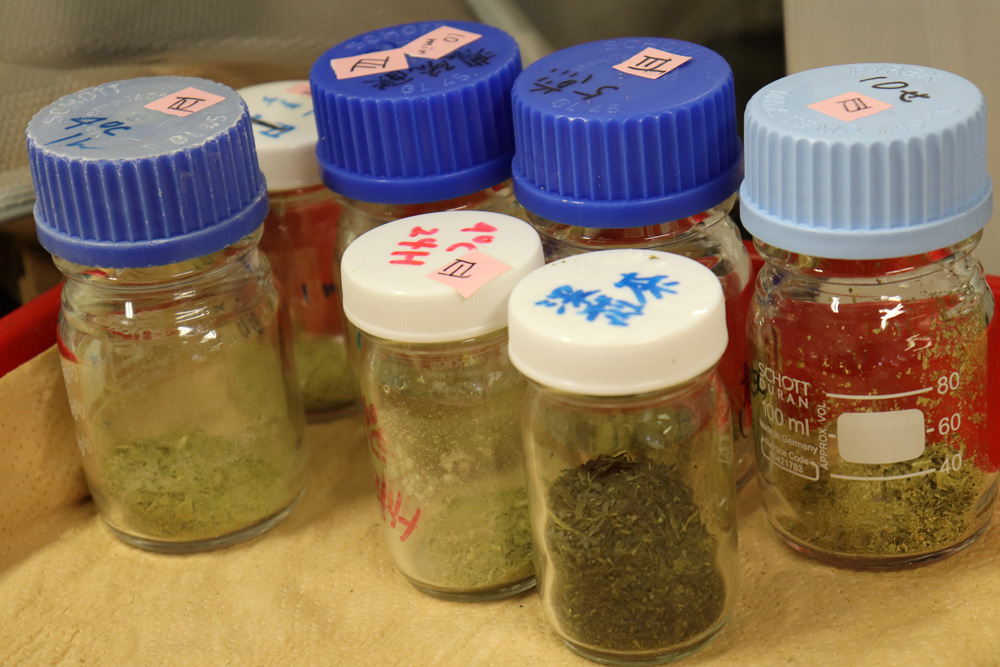
Established at the University of Shizuoka is Japan’s first facility dedicated to the study of tea, the Tea Science Center. The center conducts multifaceted research on tea, including production, processing, nutrition, pharmacology and business management. In collaboration with other universities, public research institutes, government agencies and businesses, the center conducts a variety of daily research and initiatives promoting the tea industry. In this interview, we spoke with Dr. Yoriyuki Nakamura, who has received numerous awards for his significant contributions to the promotion of the tea industry, about the benefits and appeal of tea at the Tea Science Center.
This article is a full-length interview with Dr. Yoriyuki Nakamura, director of the Tea Science Center about the history of tea and its benefits.
Contents
- 1 The first facility in Japan dedicated to the study of tea, the Tea Science Center.
- 2 Sharing the story of the benefits and history of tea as the world today begins to pay attention.
- 3 Japanese Tea Evangelists – Overseas Students on a Mission to Spread Japanese Tea Culture
- 4 Tea – the herbal medicine of the ages
- 5 Tea’s efficacy against influenza
- 6 Tea’s efficacy against COVID
- 7 The true value of tea is the result of the daily accumulation of its benefits.
- 8 Information Of the Center for Tea Research
The first facility in Japan dedicated to the study of tea, the Tea Science Center.
In May 2013, the University of Shizuoka opened Japan’s first comprehensive course in tea science. Here, research is conducted from multiple perspectives, including tea production, processing, nutrition, pharmacology, and management. In collaboration with other universities, as well as public research institutions, government agencies and the tea industry, various research and initiatives are conducted daily with the aim of promoting the tea industry.
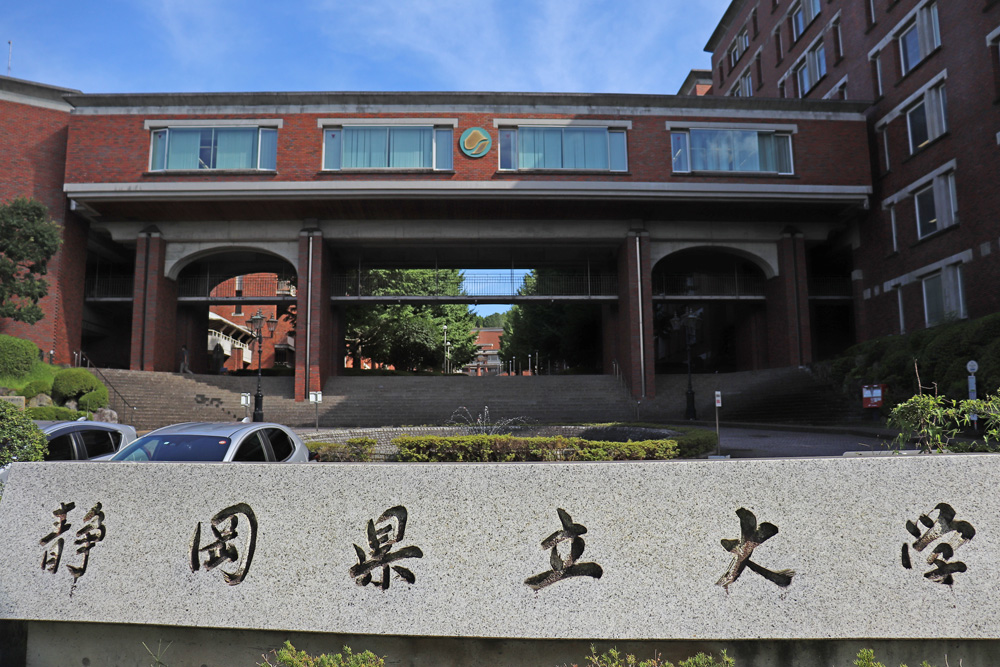
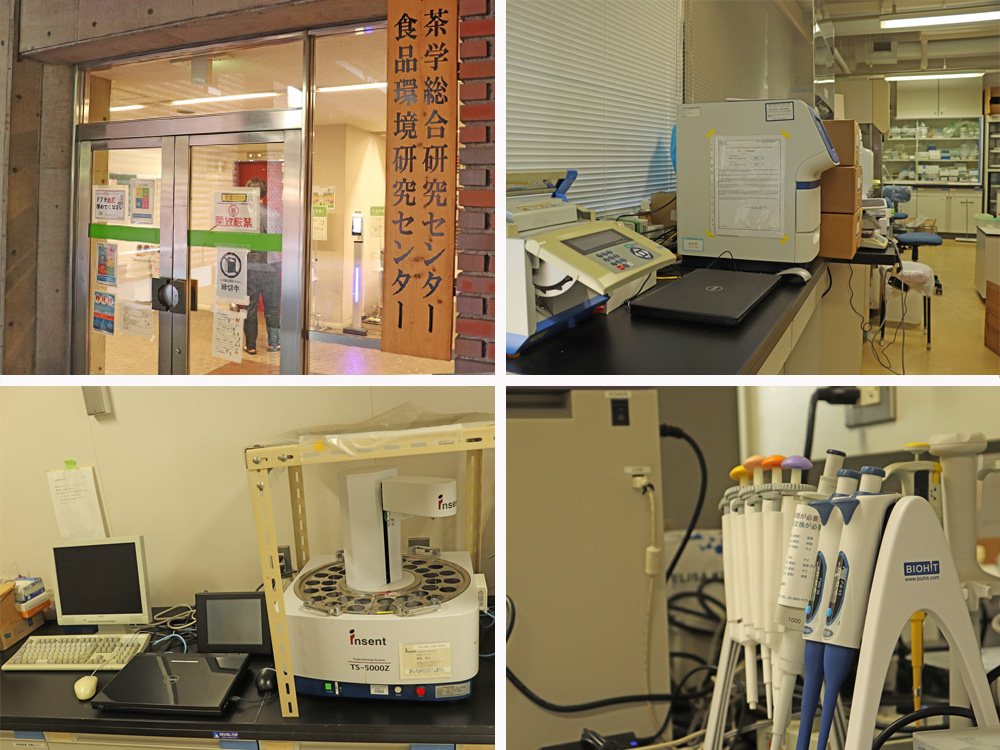
In April 2014, with the aim of centralizing information on tea and further strengthening cooperation between industry, academia, and government, the name was changed to the “Tea Science Center.” Since then, the Center has made numerous achievements and continues to share its results with the public.
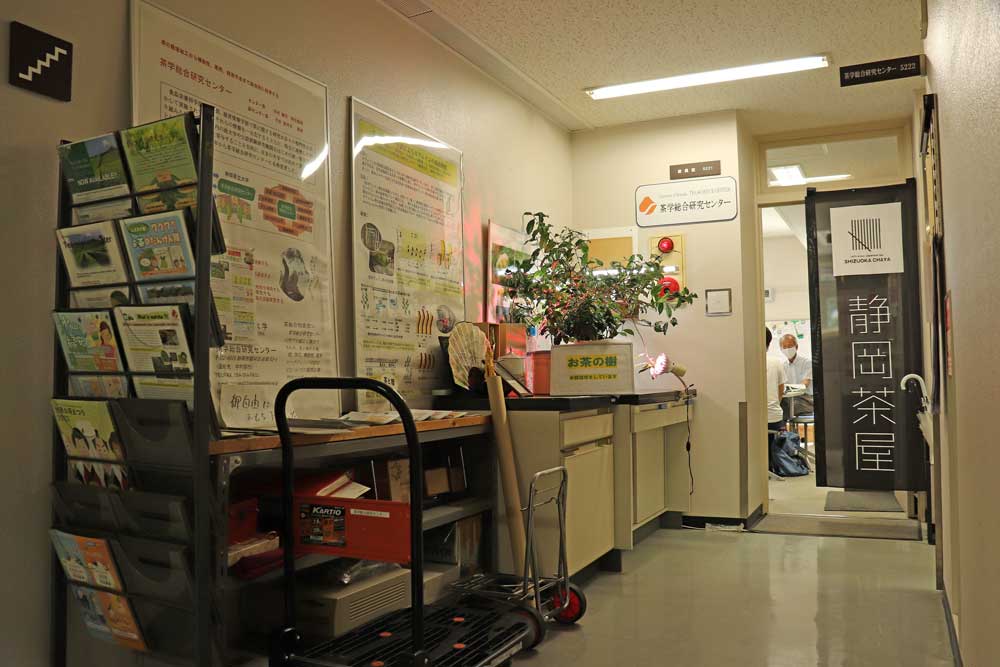
We interviewed Dr. Yoriyuki Nakamura (click here for detailed profile), who is involved in research on value-added product development, marketing, and the analysis of preference characteristics of tea leaves and beverages from Shizuoka Prefecture, about the benefits and appeal of tea.
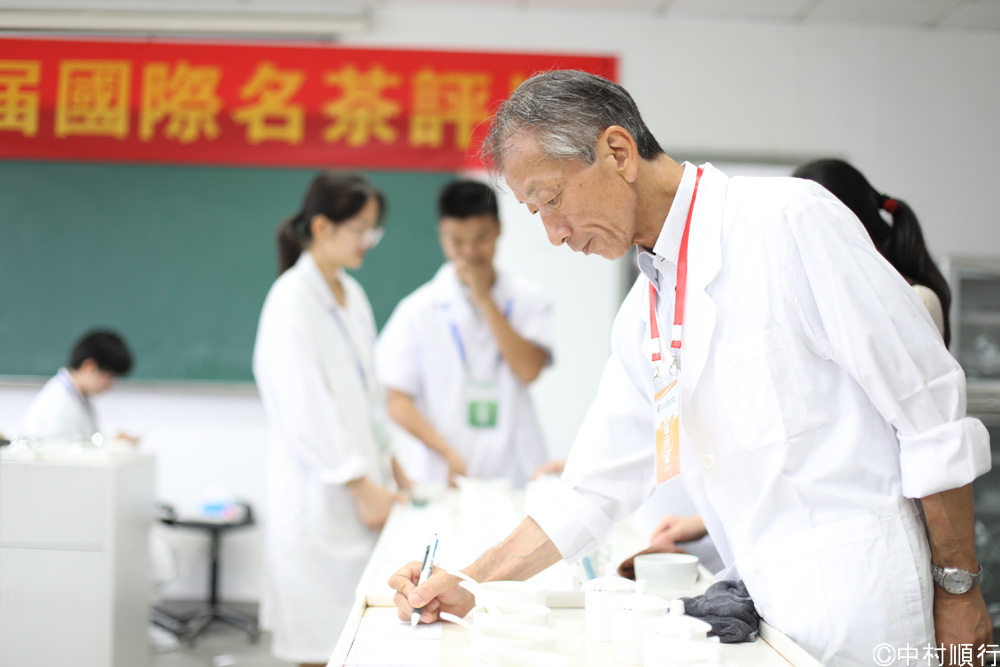
(The Tea Science Center is located in the building of the Faculty of Food and Nutritional Sciences at the University of Shizuoka’s Kusanagi Campus, about 20 minutes by car from Shizuoka Station.)
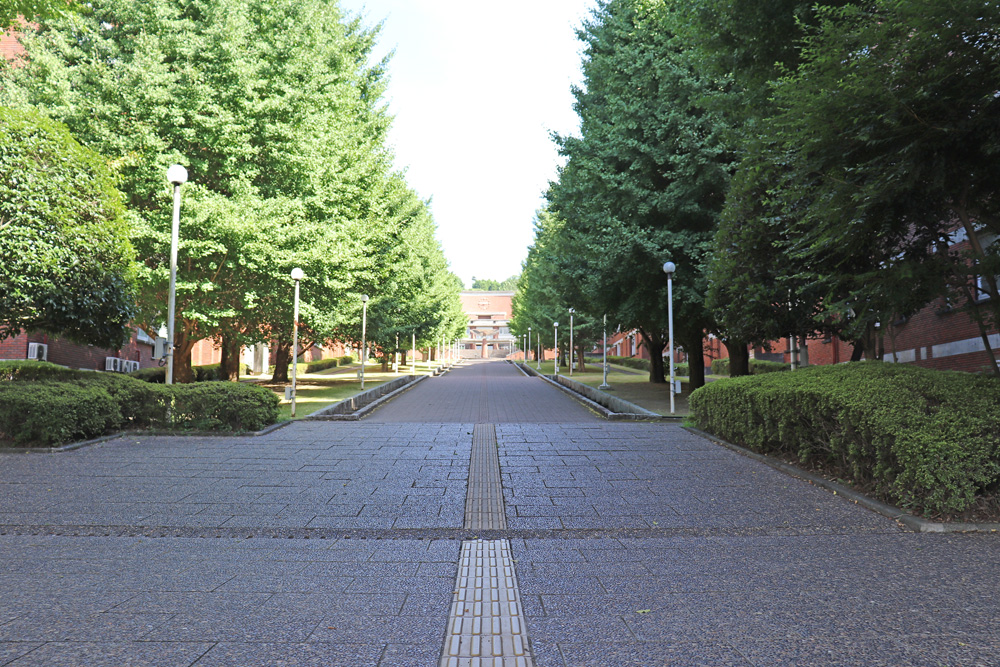
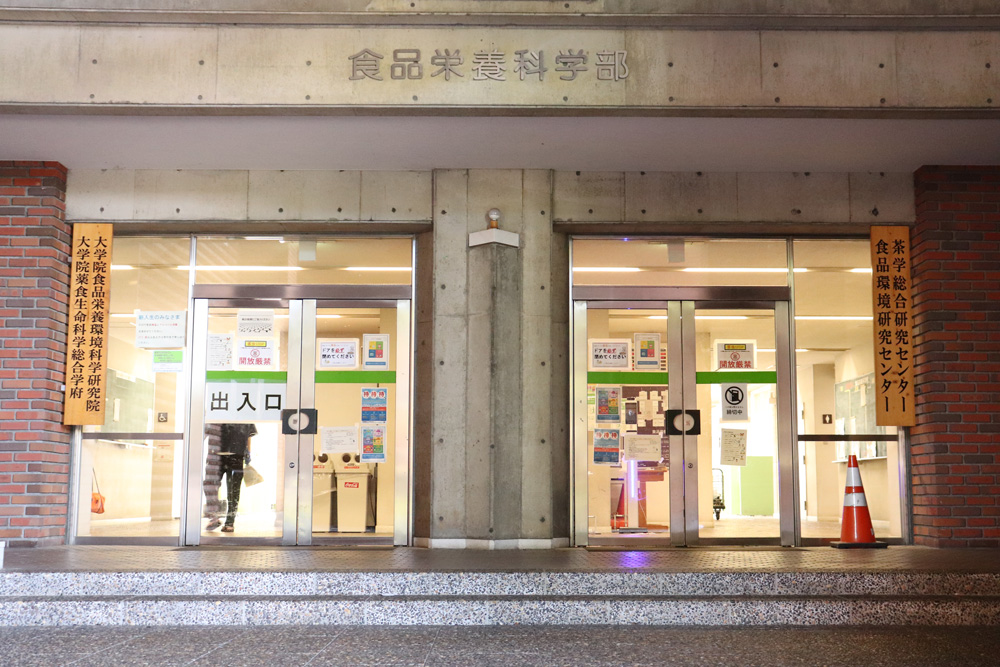
–Wow, I never knew there was this kind of institution in Shizuoka. This is the first time I have heard of it, even though I live here.
This is Japan’s first comprehensive information center specializing in tea. The University of Shizuoka is home not only to numerous experts in various fields regarding tea, but also to a worldwide network from which you can access a wide range of information on the subject.
The inquiry form on the website of the Tea Science Center has been set up to accept questions with regards to tea. Using our network of experts in various fields in this way, we are eager to show our ability to “answer any question you may possibly have concerning tea” (laughs).

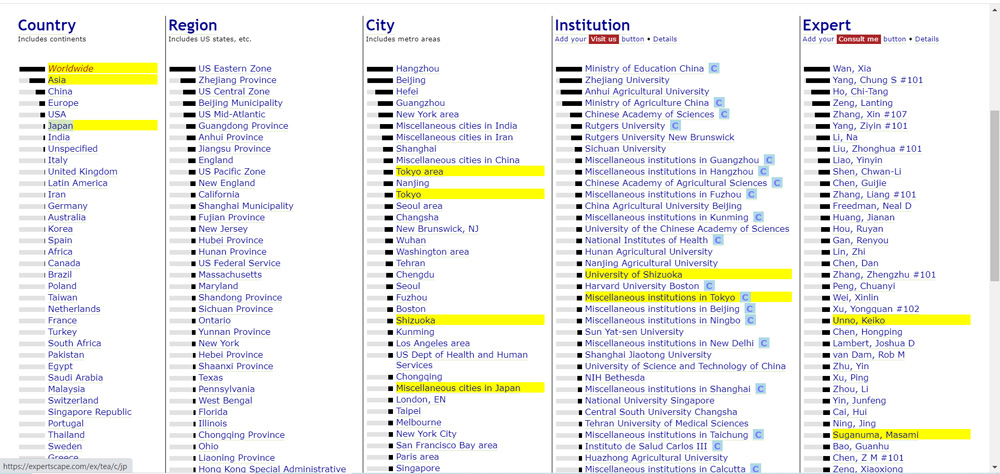 ▲Expertscape, a website listing information on researchers in medical fields from around the world, also lists experts here at the University of Shizuoka.
▲Expertscape, a website listing information on researchers in medical fields from around the world, also lists experts here at the University of Shizuoka.
–Wow, there are so many amazing researchers out there.
The fields involved in the study of tea are numerous. As one might expect, it would be impossible for me to cover all of them myself. I am not personally acquainted with all the researchers listed here, but I can introduce them to you if necessary.
–I see, so you also act somewhat as a point of contact for experts in the various fields of tea.
Since we are a comprehensive research center for tea science, we aim to provide as wide a range of services as possible. We conduct daily research, give lectures at universities, and hold lectures on tea for the general public.
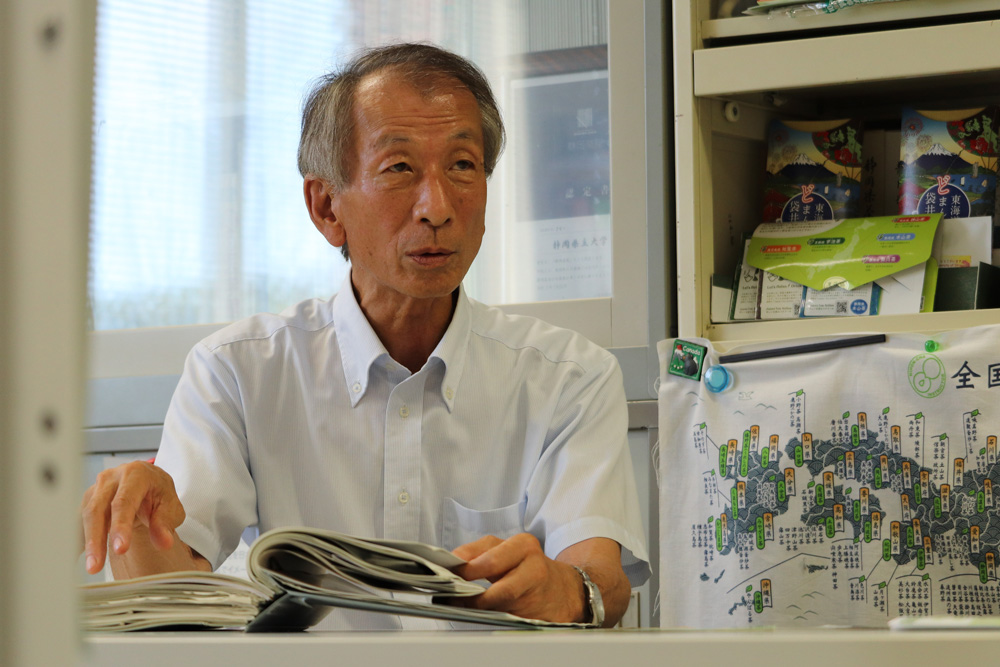
Sharing the story of the benefits and history of tea as the world today begins to pay attention.
Tea, as it is known to the general public, has wonderful health benefits. The BBC from the UK travelled all the way here to Japan to interview us introducing green tea and natto as Japanese superfoods. They even came to this very room.
We hold lectures on a broad variety of topics to let everyone know the wide range and depth of tea’s appeal. Just recently, I spoke about the history of tea. We believe that by unraveling the cumulative layers of tea history, we can gain an insight into what the role of tea will be in the future.
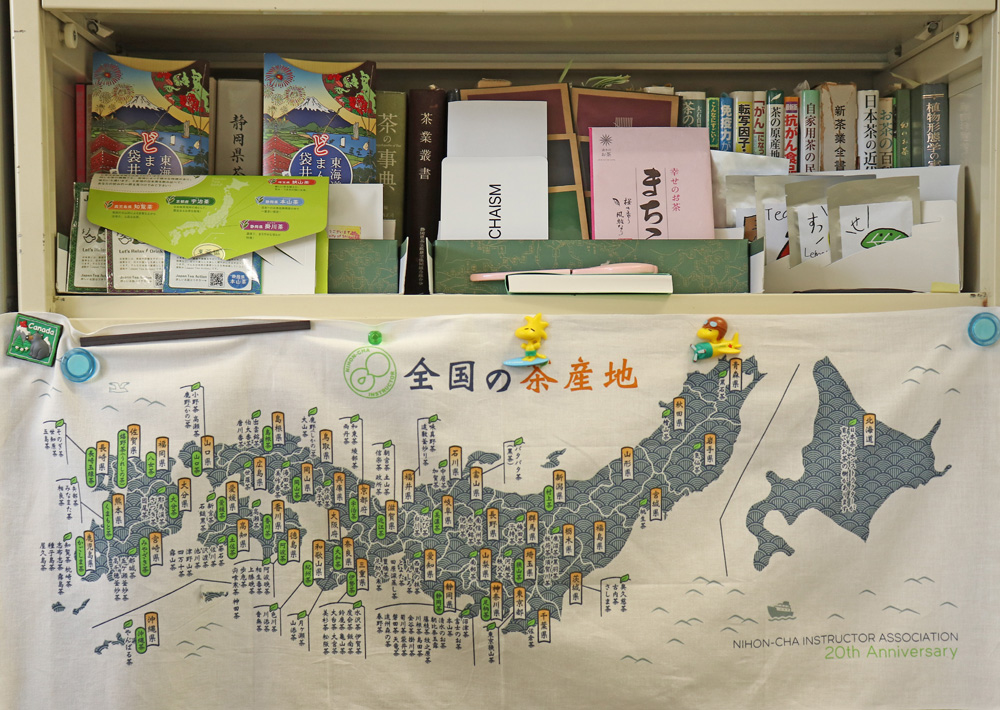
Tea was introduced to Japan in the Nara period (710-794), and has continued to be served in various forms, including matcha, sencha, and bottled teas until the present day. In the case of Japan, tea culture was divided into the two main categories of matcha and sencha during the Edo period (1603-1868), forming a culture within the genre of Japanese green tea.
Delving deeper into the subject of why we (Japanese people) have followed the path we have provides new insights that we believe interest people from a different angle.
Japanese tea has garnered worldwide interest because of its health benefits.
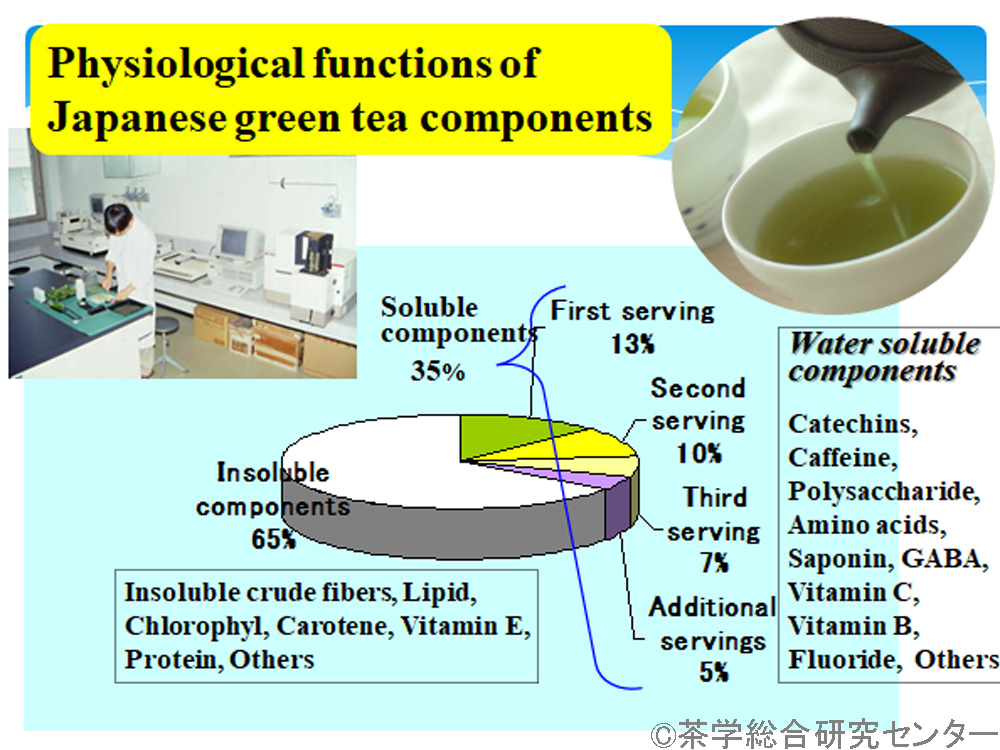
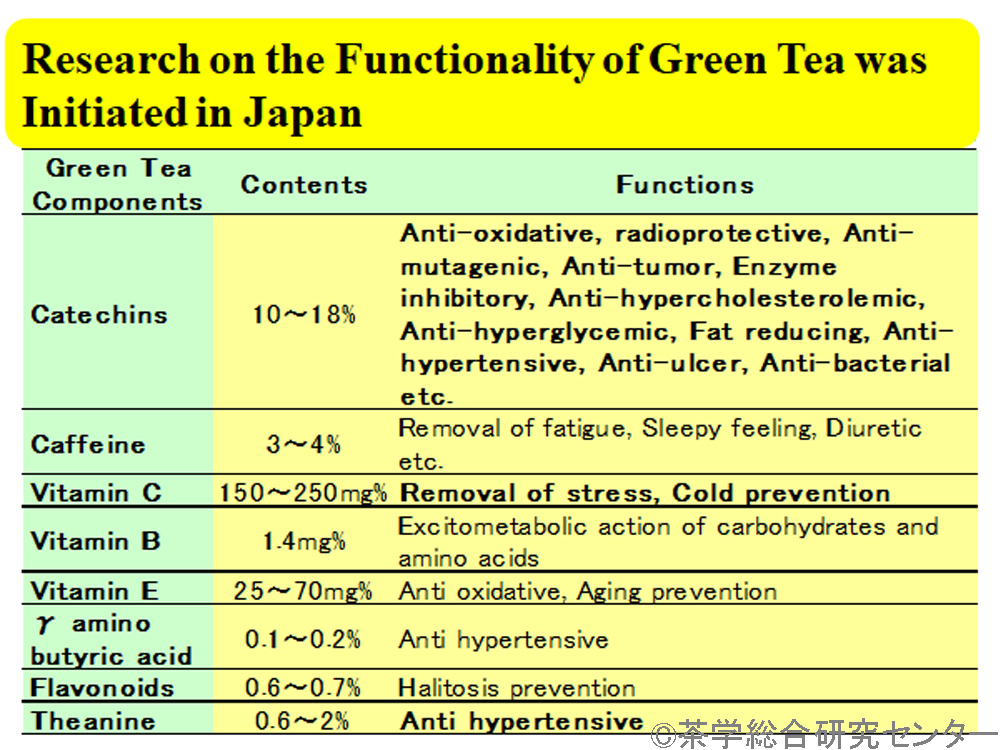 ▲The following is a handout on tea prepared by Dr. Yoriyuki Nakamura. The information explains the effects of the minerals in each cup of tea, for instance catechins, theanine and flavonol (among others) one by one in an easy-to-understand format.
▲The following is a handout on tea prepared by Dr. Yoriyuki Nakamura. The information explains the effects of the minerals in each cup of tea, for instance catechins, theanine and flavonol (among others) one by one in an easy-to-understand format.
Recently, teas with even more refined functionality are being sold as Food for Specified Health Uses and Food with Function Claims (labels issued by the Consumer Affairs Agency, Government of Japan). Our job is to share this diverse information and wrap it all up with the reminder that “tea is good for your health” (laughs).
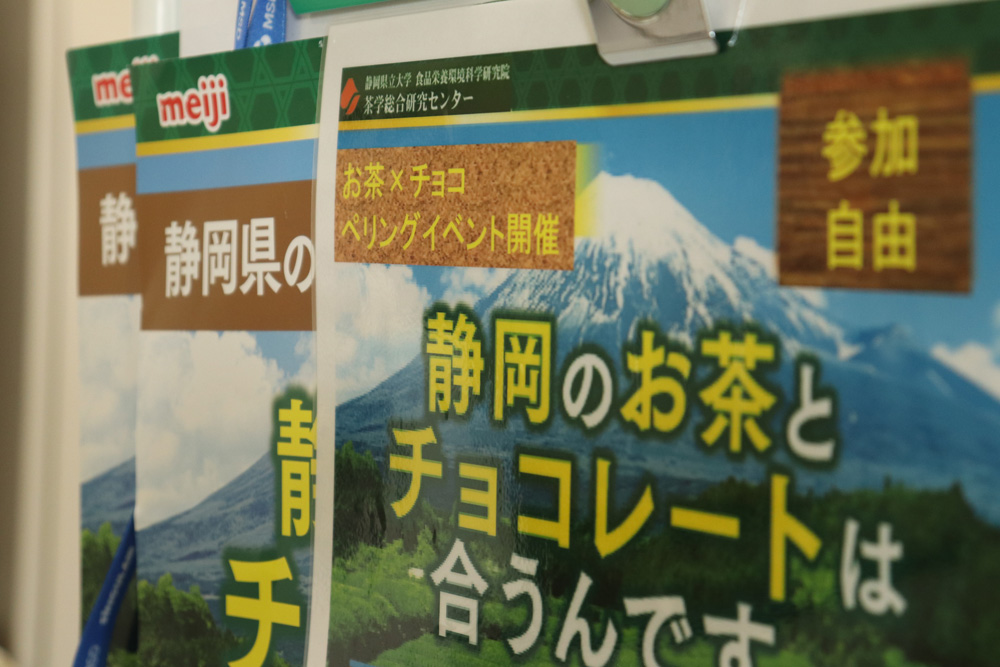 ▲In addition, we hold various events, such as a chocolate and tea pairing party in collaboration with the confectionery manufacturer, Meiji Seika Co.
▲In addition, we hold various events, such as a chocolate and tea pairing party in collaboration with the confectionery manufacturer, Meiji Seika Co.
Japanese Tea Evangelists – Overseas Students on a Mission to Spread Japanese Tea Culture
Here at the University of Shizuoka we have tea clubs such as the Matcha Circle. However, I feel that I should say that I don’t wish to be particular about a choice between matcha or sencha. I believe that each person should find his or her own way of brewing tea according to his or her own taste and situation.
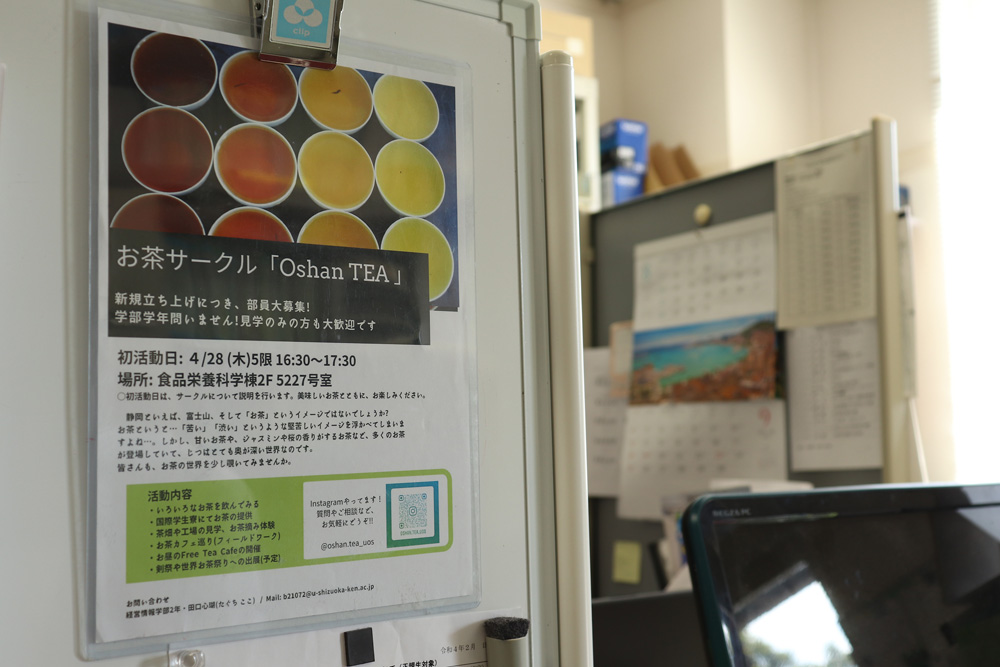
This year, the Global Japanese Tea Association established the Japanese Tea Evangelist Program. This project was launched to help university students who wish to study abroad obtain a solid understanding of what Japanese tea is and to introduce it to the rest of the world as a part of Japanese culture.
We hope to provide an opportunity for students preparing to study abroad realize that there is much they don’t know about Japan, and to renew their understanding of Japanese tea once again as a part of their Japanese identity.
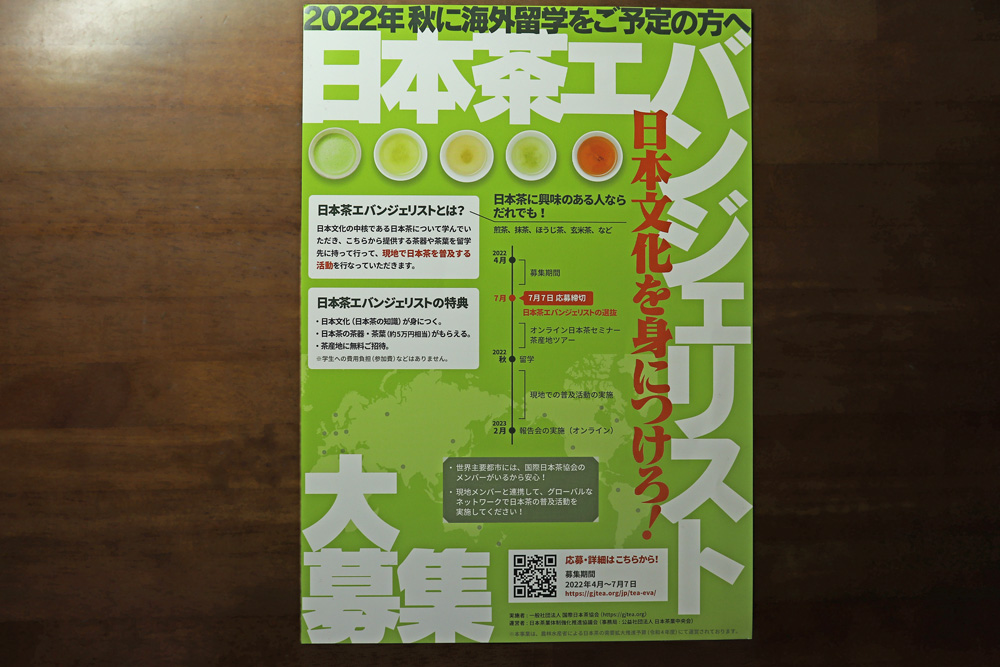
–Which countries are the most popular destinations for students from Japan wishing to study abroad?
Many students choose Europe as their destination for studying abroad. The culture of black tea has long been rooted in Europe. In contrast, how is the history, background, and culture of Japanese tea different? What are the differences between Japanese green tea and Chinese green tea? Few people have a clear understanding of this. So I encourage you to become a Japanese tea evangelist and make lots of noise sharing your knowledge to others on this topic. (laughs)
–I have heard that Japanese green tea is very popular in Europe.
Tea was originally introduced to Europe in the 16th century. The main attraction of tea at the time in Europe was that it was perceived as the beverage of choice in the East. Another was its richness in functionality from a health standpoint. However, for more than 50 years, there have been various debates in Europe about the truth or falsity of its claim to medicinal properties.
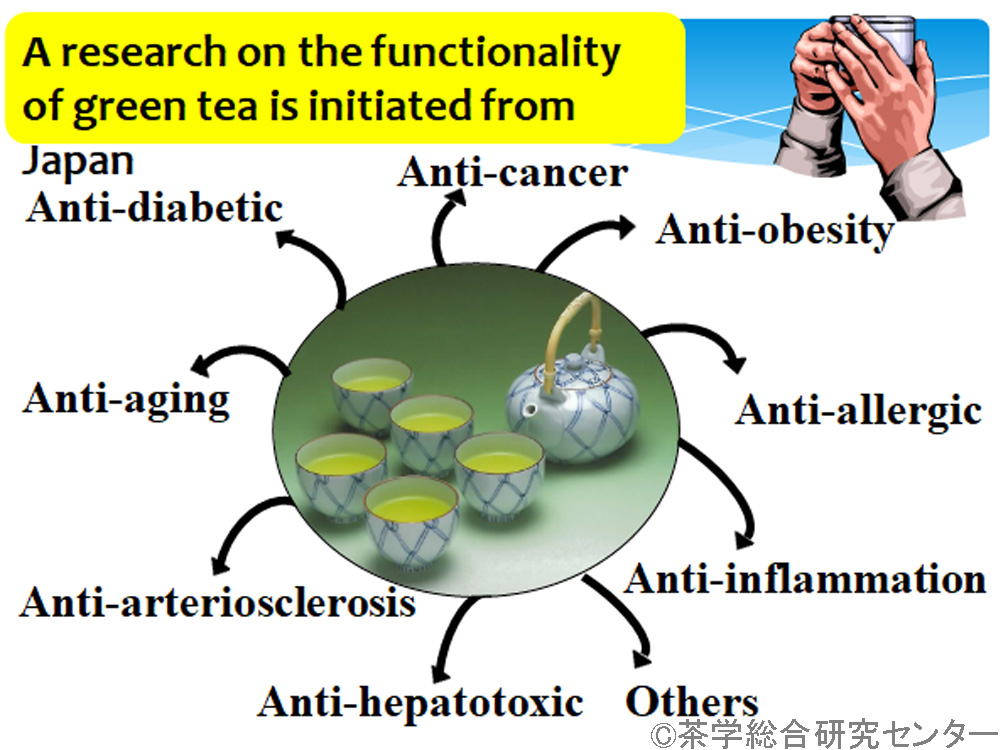
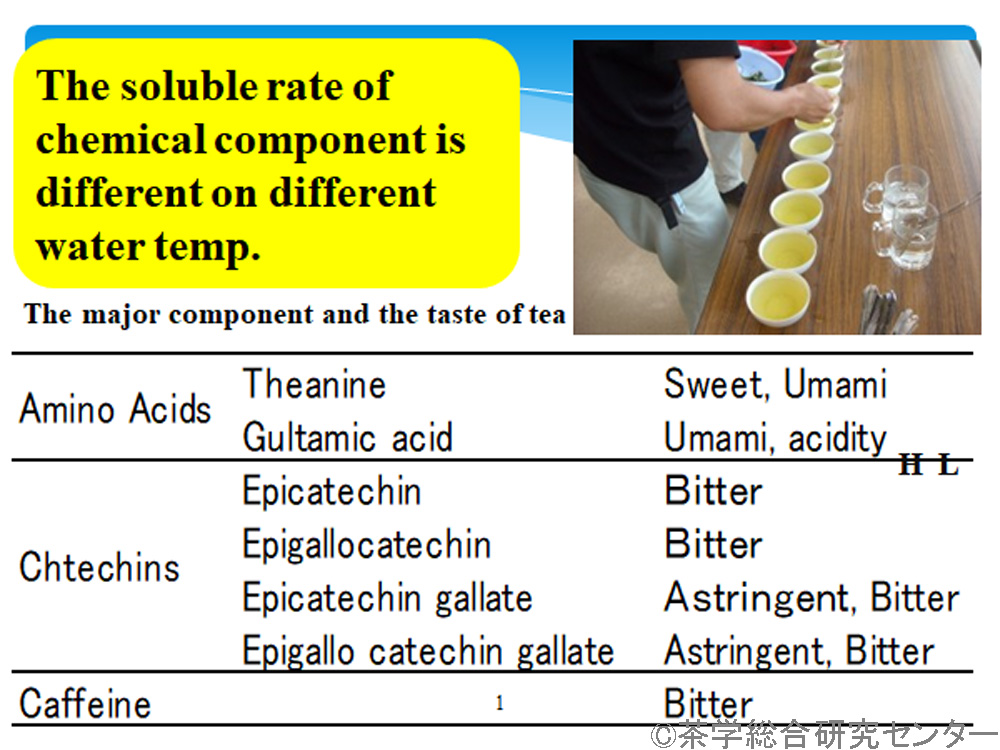
If we were to focus only on its functionality, it would be treated like a medicine and would never have taken root as a part of culture. Through a sequence of events, green tea has been replaced by black tea, which has become a part of culture as a luxury item that accompanies daily life. Furthermore, it has made black tea the drink of the world.
How in the world did it come to be so? It’s a very interesting subject, both from a scientific and literary point of view.
Tea – the herbal medicine of the ages
In ancient times, when chemical drugs did not exist, crude drugs, or Kampo formulas (using crude drugs as raw materials), were used as medicine.
In Kampo medicine, formulas are classified by rank, with those that have powerful effects, such as aconite, classified in the lower ranks (lower medicines), and those that have mild effects, such as tea, and contribute to longevity and health through daily consumption being classified in the higher ranks (higher medicines).

Such medicines have a history of being used heavily, having effects that are mild enough to be safely consumed on a daily basis, and preventing disease rather than curing it.
–So, essentially tea is a mildly effective prophylactic.
If the effects of tea were powerful, side effects would have to be considered. However, tea has been consumed for over 1000 years and its safety has been proven. It is truly a superior medicine.
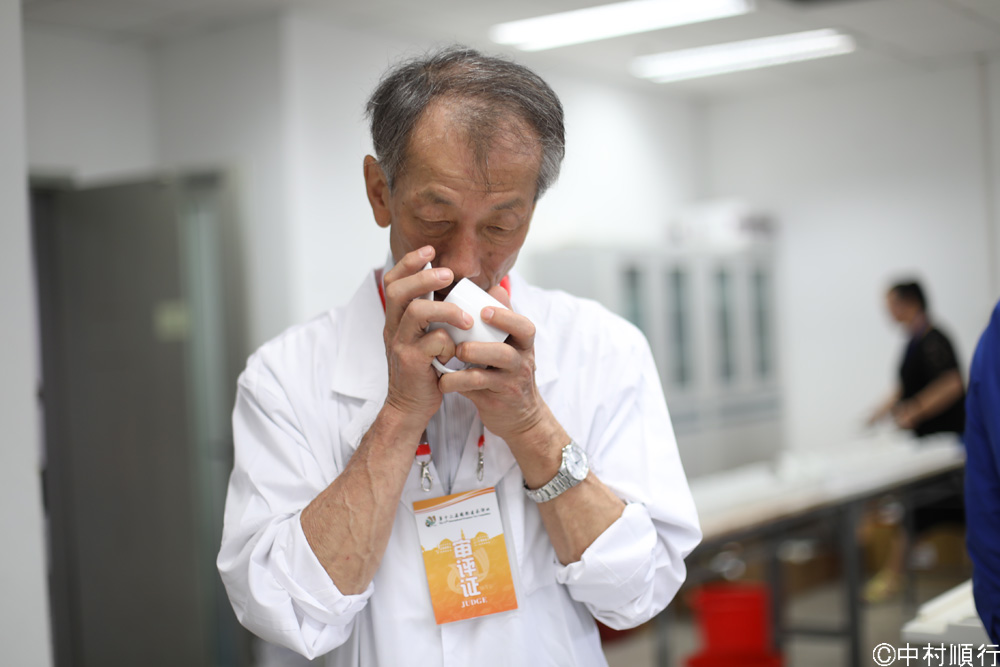
Tea’s efficacy against influenza
–I hear that tea is effective against the flu, is that true?
Numerous fundamental research studies have reported that catechins, the major components of tea, have the ability to inhibit influenza infection.
When you get a cold, you may experience symptoms such as a swollen throat. This is called upper respiratory tract infection. Tea has a preventive effect against upper respiratory tract infections.
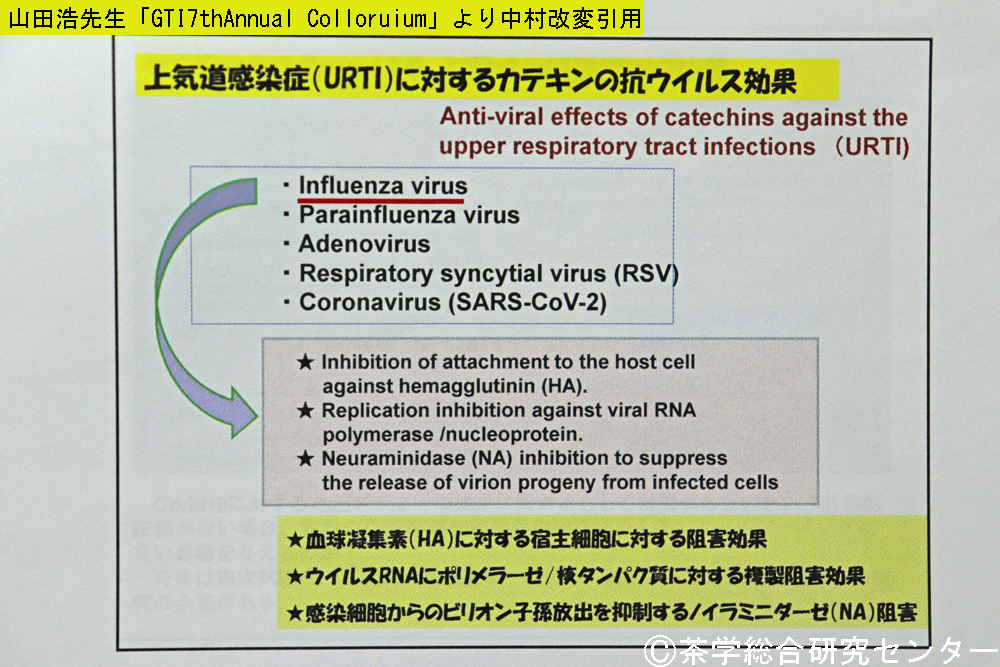
Influenza viruses have spike proteins, and catechins in tea bind to this spike protein, preventing infection by inhibiting the adherence of the virus to the host cell surface.
Both influenza and COVID are similar in form as viruses. In addition, the theanine and vitamin C found in tea have immunity-enhancing properties.
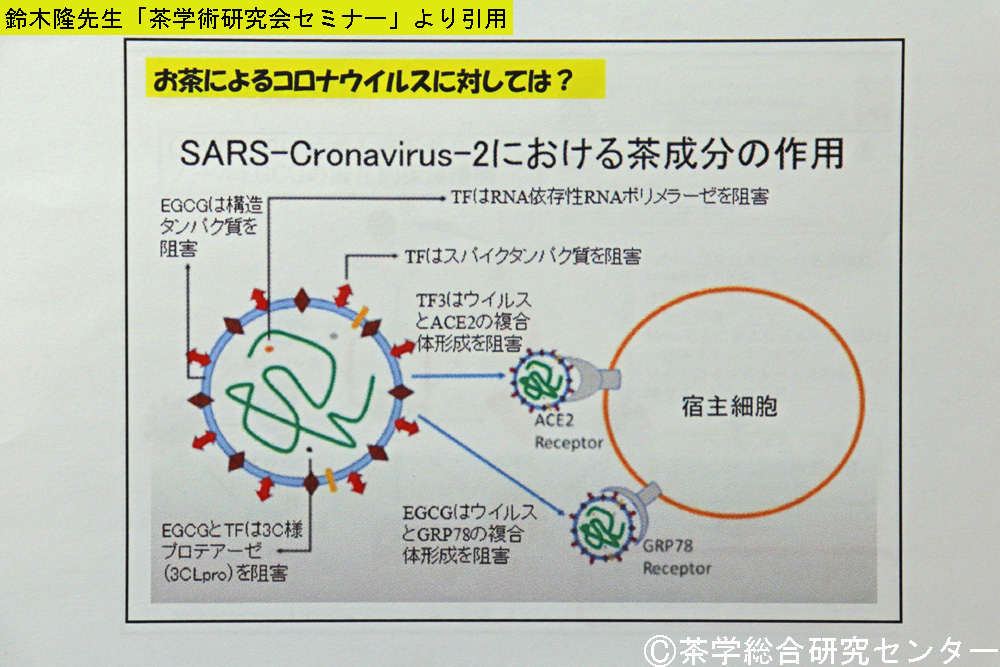
Tea’s efficacy against COVID
— So does that mean tea can help to fight COVID?
Questions about the relationship between tea and COVID are common, but we do not know the result of whether it is efficacious in humans or not. However, tea is definitely effective against COVID when tested in test tubes. There is a great deal of data showing that it has a dramatic effect on the virus.
For example, a study conducted by Dr. Matsuda of Kyoto Pharmaceutical University has results proving that tea kills the COVID bacteria contained in saliva.
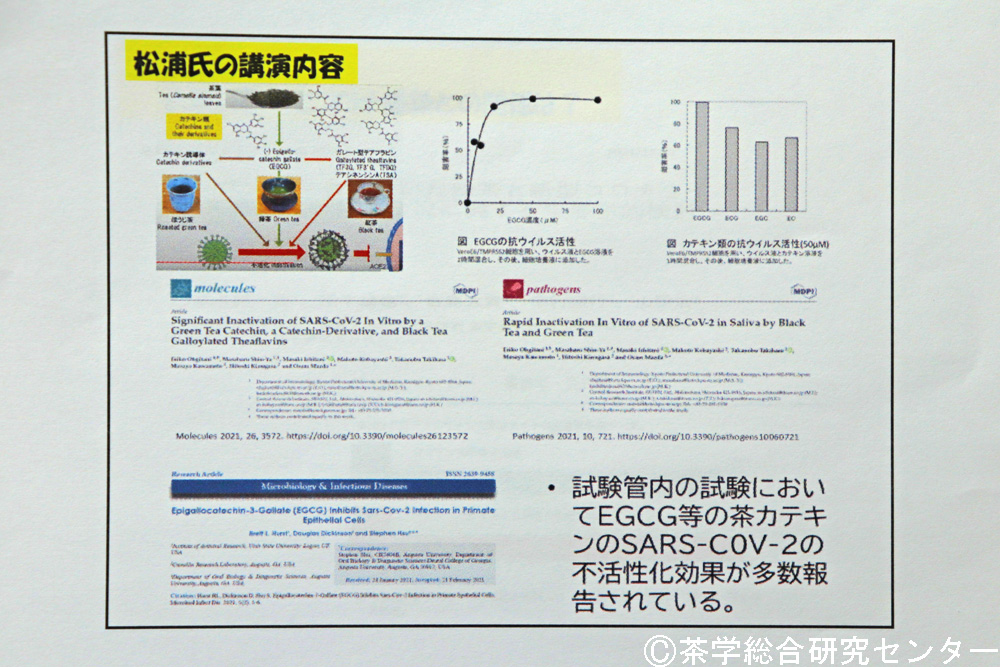
However, this is the result of in vitro research and will not necessarily be the case in humans. To begin with, tea has a specific path in entering the body: through the oral cavity. It does not travel up into the nose, nor does it fill the entirety of the mouth.
Even if the virus is almost completely eliminated temporarily, if left alone for a while, the remaining viruses will quickly multiply again.
The same is true for cancer. In a test tube, tea has a dramatic effect on cancer cells. However, it does not have the same effect in the human body.
Especially in the case of the human body, factors such as temperature at the time of ingestion, concentration, genetic background, and intestinal bacterial flora vary from country to country and race to race. In addition, lifestyle habits such as smoking and alcohol consumption also vary, making it difficult to draw certain conclusions.
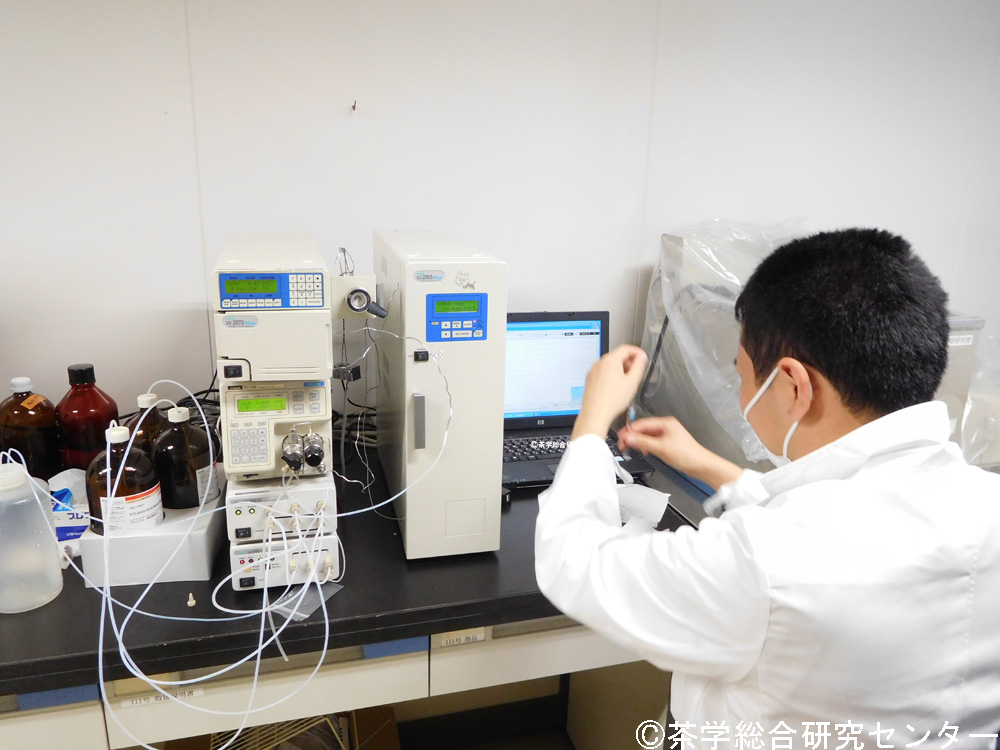
Experimental results in limited cases, such as in vitro, show that tea is undoubtedly effective. As stated before, it is classified in Kampo as a highly ranked superior medicine. However, tea is not a medical drug like Western remedies. If it were, tea would be available as a medicine in pharmacies.
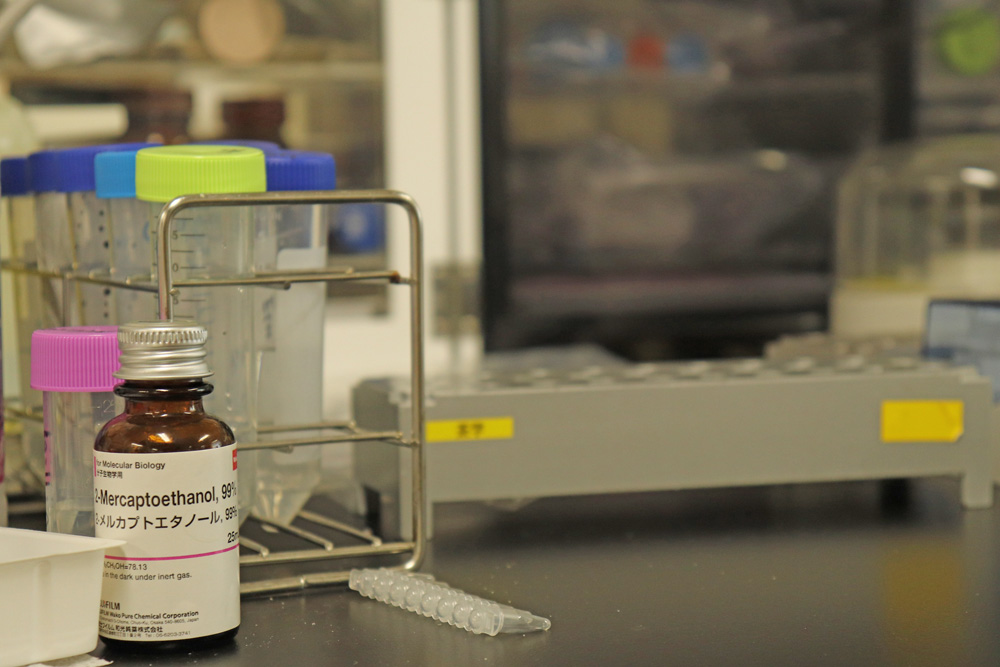
The true value of tea is the result of the daily accumulation of its benefits.
–From what I have heard so far, tea definitely has efficacy. However, it does not work forcibly on the human body like antibiotics do. Hence, there is no harm to the human body even if consumed regularly. I would say that the efficacy of tea comes into play through regular consumption paired with one’s usual regimen and diet.
For those who wish to learn more, a collection of research results is also available. Here is a collection of research results on the functionality of tea from the Shizuoka Prefectural Government’s Tea Promotion Department, which can be downloaded as a PDF file (click on the image below). It is a collection of research results on the effects of tea on the COVID virus, which has been making a lot of noise in Japan. If you are interested, please take a look.(Japanese Only)
–I would suggest discarding thoughts like, “I eat a lot of junk food but I drink tea which is really good for you, so I think I should be fine.”
If you are a regular binge consumer, it is just a waste of money to spend lots of money on tea certified as a Food for Specified Health Use or Food with Functional Claims (laughs). We simply hope that everyone enjoys a healthy lifestyle that includes tea as a part of it.
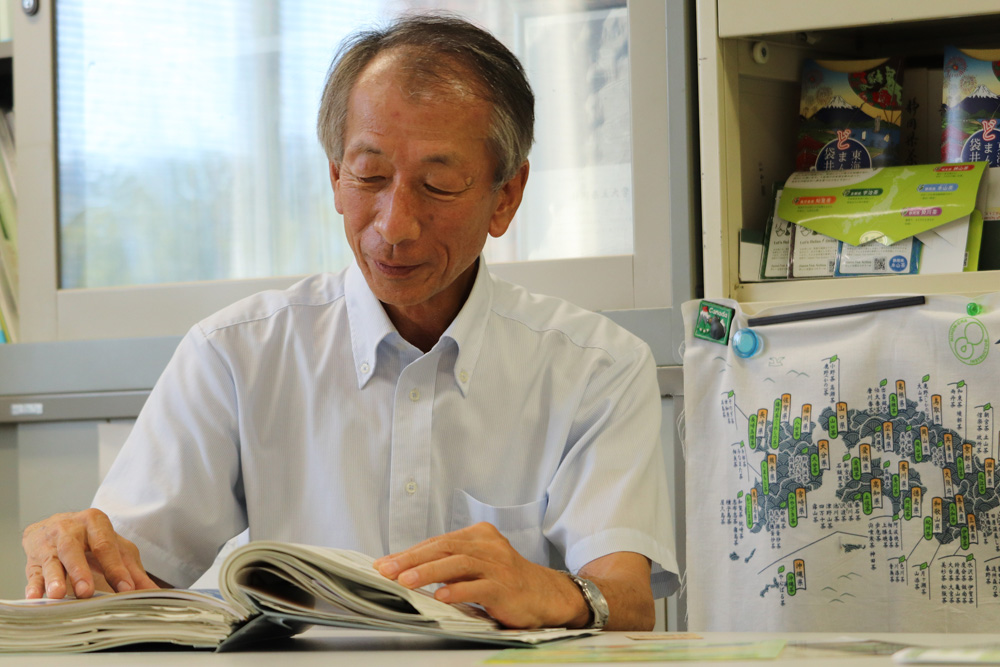
Information Of the Center for Tea Research
| Address | 52-1, Yada, Suruga-ku, Shizuoka City, Shizuoka Prefecture, 422-8526, Japan |
| Website | https://dfns.u-shizuoka-ken.ac.jp/labs/tsc/index.html |
| Phone number | 054-264-5822 |
| Open | Contact Center of Tea Research |
| Closed | Contact Center of Tea Research |
| Parking lot | Available |
| Access | 15 minutes walk from JR Kusanagi Station South Exit (Prefectural University/Art Museum Exit) or Shizuoka Railway “Kusanagi” Station. |
| Writer | Norikazu Iwamoto |
| Career | Ochatimes chief editer. Meeting with Vice Governor of Shizuoka prefecture. Judge of Shizuoka 100 tea’s award in 2021~23. Ocha Times link introduced at website of World O-CHA(Tea) Festival 2022, Tea Science Center, The City of Green Tea Shizuoka, Ministry of Agriculture, Forestry and Fisheries. |
| English translator | Calfo Joshua |
| Career | Born and raised in England, living in Japan since 2016. Studying arboriculture in Shizuoka Prefecture whilst operating his landscape business Calfo Forestry. Appreciating the nature of Japan and the culture that places such importance in it. |


 Go to Japanese page
Go to Japanese page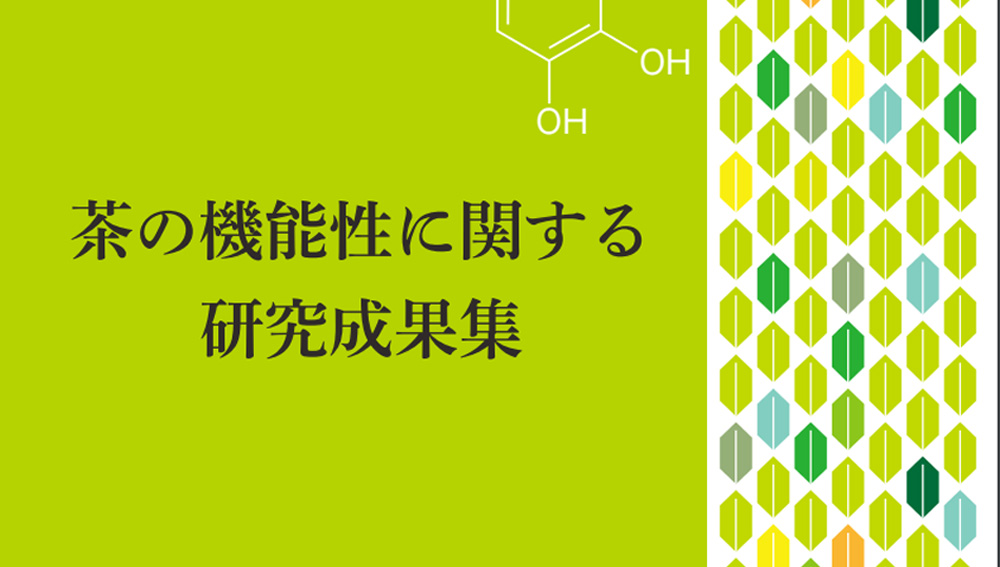
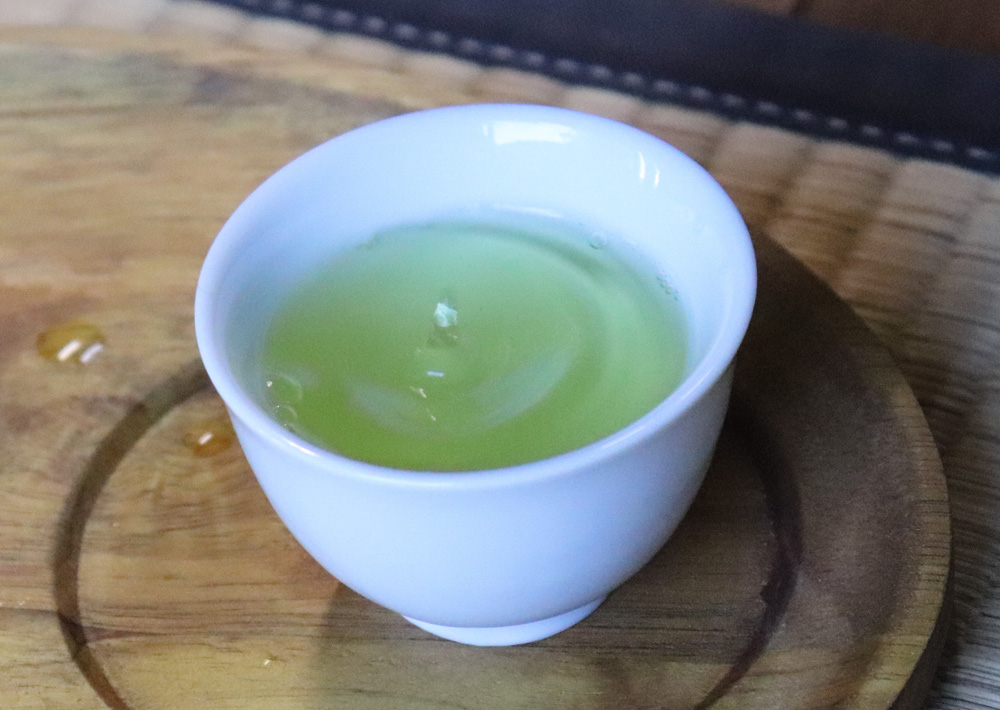
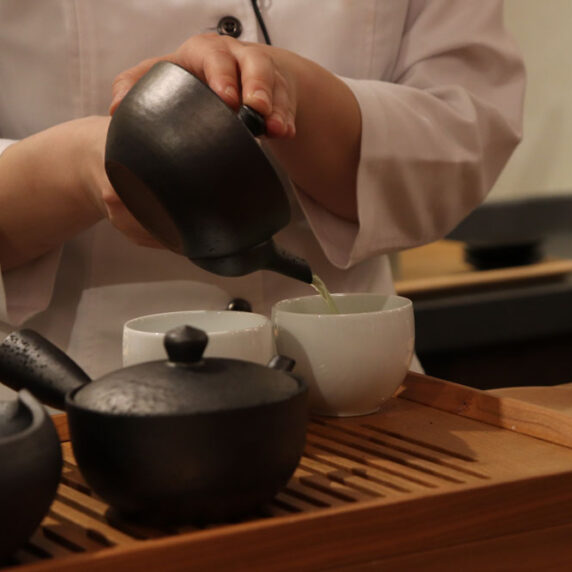
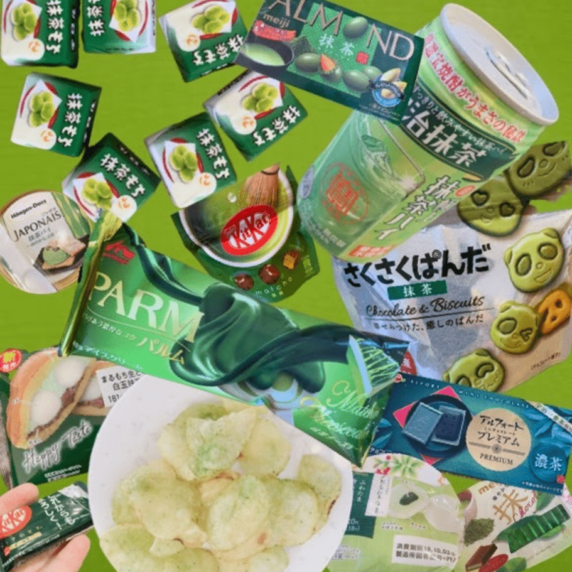
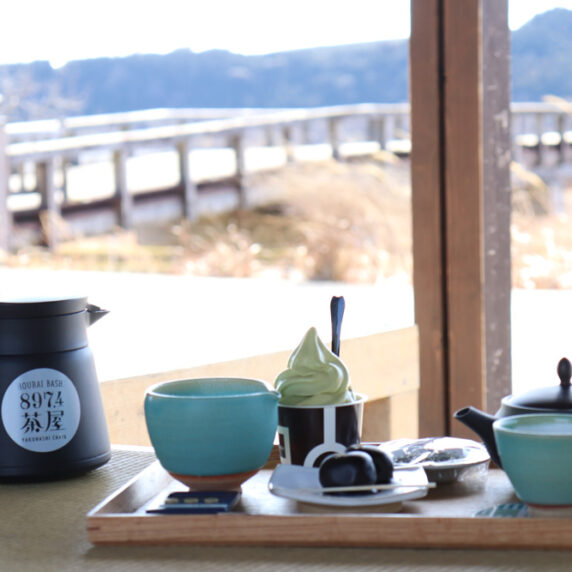
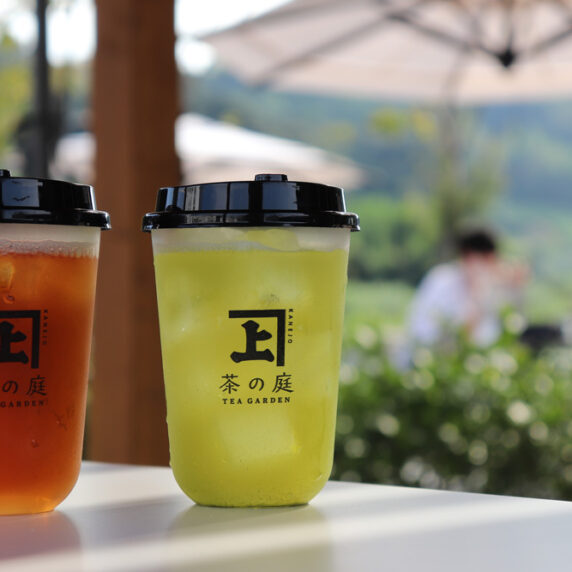





 on the red bar to close the slide.
on the red bar to close the slide. to see the distance between the current location to the Chaya.
to see the distance between the current location to the Chaya.